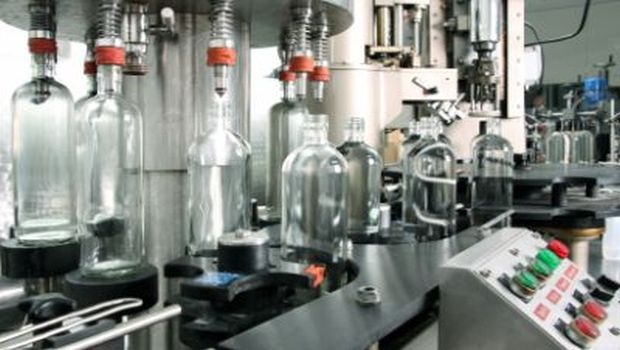Reduce Costs Through Tablet Equipment Maintenance
Proper maintenance and routine repair of tableting machines can extend the life of valuable equipment and reduce costs.

It is good business practice to run an efficient operation with as little waste as possible; this includes receiving the maximum life from supplement manufacturing equipment. Nutritional manufacturers can make a big impact on their bottom lines with proper tool handling and press maintenance. Small changes to general practices and improvements to procedures can help reduce costs.
As nutraceutical tablets tend to comprise highly abrasive materials, natural products manufacturers face unique challenges. Abrasive powder can not only cause excessive tooling wear, but also premature wear on press parts. As equipment wears down, tablet quality diminishes, increasing cost and waste. Despite the inherent issues caused by abrasive powder, there are many simple steps that can be taken to reduce problems. In fact, manufacturers may be increasing production costs simply by not adhering to a regular inspection and maintenance program.
Tooling Wear
Excessive tooling wear is one of the most common challenges faced by nutritional tablet manufacturers. Abrasive products cause erosion on the land and punch cup—two important punch dimensions. As powder is compressed in the die between the upper and lower punches, it can slowly erode the edges of the punch cup, thus reducing the land on the punch. Erosion and damage to the cup could also occur. But all is not lost. These tools may be repaired (or reworked) and put back into service with a small amount of effort.
The quickest and most cost effective way to fix tablet compression tools is to polish the punch cups. Using a buffing station with an unsewn cotton wheel will restore land to the cups. A drag finisher will not restore the cups or land. Buffing the cups will also polish them and remove scratches and other damage. Use a diamond polishing compound with a polishing kit (nylon brushes) when only polishing is needed. All of this can be done in-house with the appropriate equipment, training and experience. If the punch heads are also worn, it would be best to send the tools to the vendor to be reworked, as they will also resize the lengths and refurbish the heads.
By polishing and refurbishing tools, manufacturers can keep tools in service for much longer, reducing costs significantly. Additionally, removing scratches from the punch surface keeps powder from accumulating in surface blemishes in the cup, thereby reducing sticking issues.
Tablet Press Wear
Abrasive powders can wreak havoc on surfaces they contact. This is especially deleterious in the tablet press. As powder travels around the die table during the compression process, it migrates into areas other than the dies. The longer powder is in contact with these areas such as cams and rollers, the more quickly and unevenly these parts wear.
To allow presses to run longer and reduce premature part wear, keep presses as clean as possible and vacuum excess powder off all surfaces regularly. Doing so will reduce parts and turret maintenance costs, as well as improve tablet quality and manufacturing efficiency. The tablet presses will run with fewer problems, such as tool binding and overheating, if they are properly and proactively maintained. Presses are equipped with vacuum nozzles—be sure to use them.
Lubrication
Lubricating the punch head is a simple and cost-reducing procedure that is often overlooked. The punch heads and cam tracks should be lightly lubricated to reduce friction and help them function unfettered. Additionally, punch barrels should be coated with a light application of food-grade oil (preferably extreme pressure rated.) Special attention should be paid that the correct lubricant is used in each the area of the equipment and on the punches.
Storage and Handling
The simplest way for nutritional tablet manufacturers to reduce costs is to properly handle and store tooling. Because punches and dies are made from hardened steel, technicians often think the tools should be able to withstand rough handling. However, even minor mishandling of the tools can result in problems during production. Tip damage is the most common visible result of mishandling. Die edges can also receive impact damage that can, in turn, harm the press turret, thus reducing the life of the turret. Even small dings to the tooling can cause lost efficienc,y as scratches on the barrel and heads of the punches will impact the travel of the punch in the turret as well as the impact of the head on the compression roller.
All employees who work with the compression tools should be advised to handle them with care as they are a significant and easily damaged investment.
In tandem with careful handling, tooling should also be cleaned and stored properly. After thorough cleaning—preferably with an ultrasonic bath—drying and inspection, tooling should be lightly oiled and stored securely to prevent rolling or bumping into any hard surfaces.
Poor tool care and equipment maintenance results in unnecessary tool purchases and parts replacement. These costs can be reduced by implementing common sense policies to address tool handling and maintenance. Making a few small changes can reap big rewards in the long run.
For more expert tips that can help reduce stress and save costs, visit INSIDER’s Contract Manufacturing Content Library.
Dale Natoli, president of Natoli Engineering Co. Inc., has more than 33 years troubleshooting in the tablet compression industry. Natoli has published articles for major pharmaceutical publications and authored chapters in three books, including the “Tablet Specification Manual" sponsored by the American Pharmaceutical Association. He presents lectures for universities, pharmaceutical associations and tablet manufacturers worldwide.
About the Author
You May Also Like